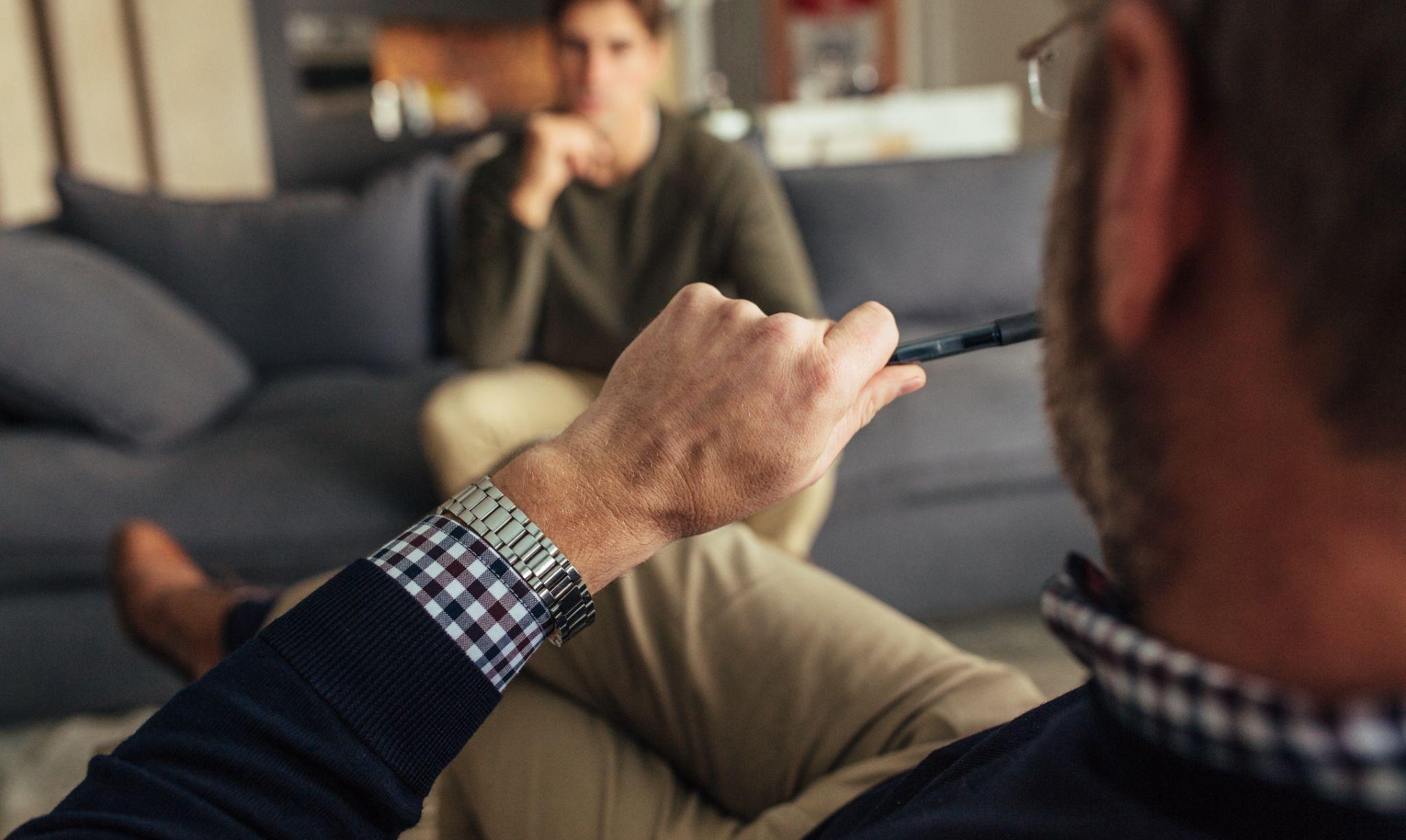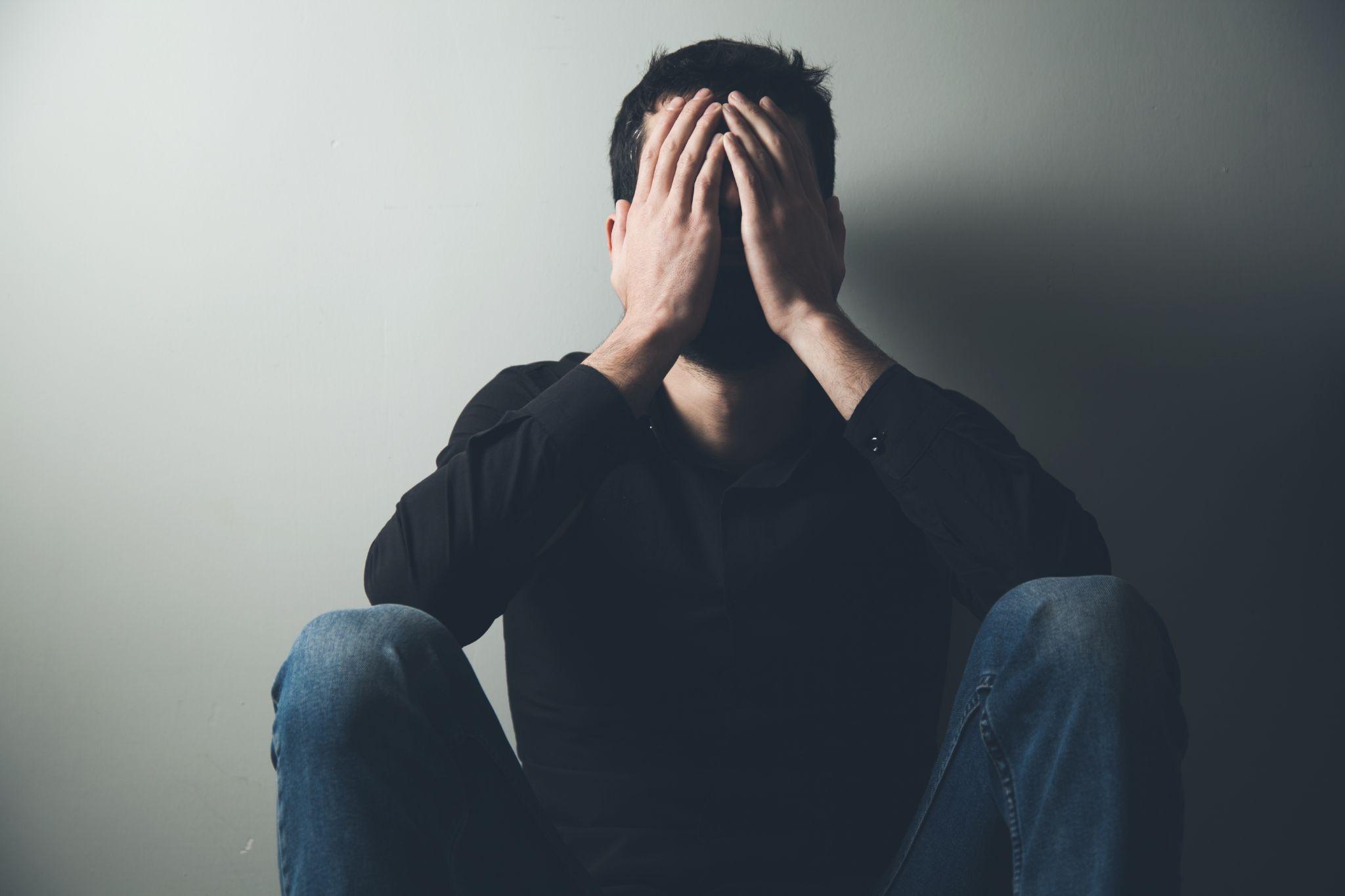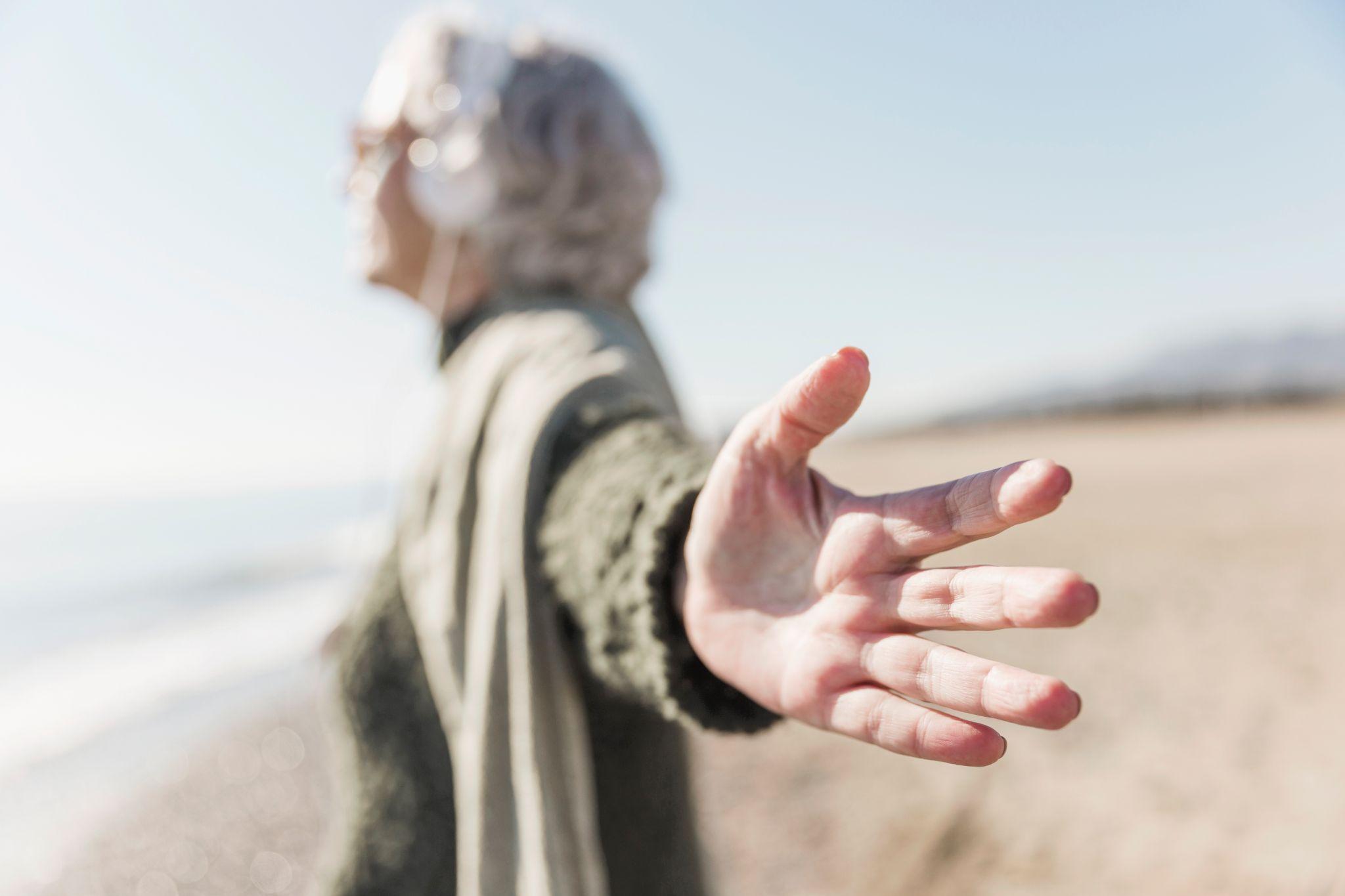
Our Addiction Resources
Navigating the world of addiction and recovery can be overwhelming. We’re here to provide clear, compassionate education and guidance. From practical advice for maintaining sobriety to informational guidance on the long-term effects of substance abuse, our content is a beacon of hope and understanding.
Our Team is Ready are ready to take your call
Call us Today!
or we can call you. Fill out form below
Our Blog

“White Knuckling” in Addiction Recovery: Meaning & Dangers
Addiction recovery is a challenging and complex process that requires dedication, support, and a deep commitment to personal growth. Some individuals attempt to maintain sobriety through sheer willpower alone—a method known as “white knuckling.”
While this approach may work in the short term, it often leaves the individual vulnerable to relapse and prevents true healing. Long-term healing requires understanding what “white knuckling” means, why it is a dangerous path to recovery, and why a more holistic and supported approach is essential for success.
What Is “White Knuckling” in Addiction Recovery?
Referred to as “white knuckling” or “white knuckle sobriety,” this phenomenon involves trying to maintain sobriety by holding on tightly to the idea of being sober without engaging in the deeper work required for lasting recovery.
The term itself paints a vivid picture—someone gripping tightly, with their knuckles turning white from the effort. In the context of addiction recovery, this means relying solely on willpower to stay sober, often without addressing the underlying causes of addiction, such as trauma, mental health issues, or emotional pain.
People who “white knuckle” through the recovery process often avoid seeking professional treatment options like therapy, recovery programs, or joining support groups. They may believe that simply abstaining from drugs or alcohol is enough to achieve recovery, without realizing that addiction is more than just a physical dependency—it’s also a psychological and emotional challenge.
5 Dangers of White Knuckling
While the intention to stay sober is commendable, “white knuckling” is an unsustainable approach that can have serious consequences. Here are some of the key dangers associated with this method:
1. High Risk of Relapse
Without addressing the root causes of addiction, individuals who “white knuckle” their recovery are more likely to relapse. Addiction often stems from deep emotional pain, trauma, or mental health disorders like anxiety and depression.
When these issues remain unresolved, the pressure to maintain sobriety without proper coping mechanisms becomes overwhelming. In this state, the individual may turn back to substances to numb the emotional distress, leading to repeated relapses.
2. Isolation
One of the most dangerous aspects of “white knuckling” is the isolation that often accompanies it. Many individuals who use this approach refuse to reach out for help, whether from a therapist, a support group, or from loved ones.
This self-imposed isolation can exacerbate feelings of loneliness, depression, and anxiety—all of which are risk factors for relapse. Recovery is not something that can be done in isolation—it requires connection and support from others who understand the journey.
3. Lack of Emotional Healing
Sobriety is only one piece of the recovery puzzle. Emotional healing is crucial for long-term success, but “white knuckling” often bypasses this essential aspect.
By refusing to engage in therapy or counseling, individuals miss the opportunity to process trauma, develop healthy coping skills, and work through the emotional challenges that contributed to their addiction in the first place.
Without emotional healing, the risk of turning back to substances as a way to cope with life’s challenges remains significantly higher.
4. Burnout and Fatigue
“White knuckling” requires a tremendous amount of effort, and the constant battle to maintain sobriety without support can lead to emotional and physical burnout.
Over time, the stress of holding on tightly can wear an individual down, leading to feelings of exhaustion, frustration, and hopelessness. This fatigue makes it harder to resist cravings and increases the likelihood of giving in to old habits.
5. Failure to Build a Support Network
A key component of recovery is building a strong support network, whether through 12-step programs, group therapy, or relationships with sober friends and family members. Support networks provide a sense of accountability, encouragement, and belonging.
Individuals who “white knuckle” through recovery often miss out on the benefits of having a support system, leaving them more vulnerable to relapse when faced with stress, temptation, or emotional triggers.

Why a Holistic and Supported Approach Is Essential
Recovery from addiction is about creating a new way of living that promotes emotional, mental, and physical well-being. A holistic approach to recovery involves addressing the underlying causes of addiction and developing healthy coping mechanisms to replace substance use. It also involves seeking peer and professional support to provide guidance, encouragement, and accountability.
Addressing Underlying Issues
Addiction often masks deeper issues such as trauma, depression, or anxiety. Through addiction treatment therapy, counseling, and other supportive measures, individuals can begin to explore and heal from these underlying problems. This not only reduces the risk of relapse but also empowers individuals to live fuller, healthier lives.
Developing Healthy Coping Mechanisms
In recovery, it’s important to develop new ways to cope with stress, emotions, and life challenges without turning to substances. This can include learning mindfulness techniques, engaging in regular physical activity, practicing self-care, and cultivating positive relationships. These tools help individuals manage the emotional ups and downs of life in a way that supports long-term sobriety.
Building a Strong Support Network
Having a strong support network is crucial for maintaining sobriety in the long term. Whether it’s through a 12-step program, Alcoholics Anonymous (AA), a therapist, or sober friends, support networks provide individuals with the encouragement and accountability they need to stay on track. Additionally, connecting with others who have gone through similar experiences can offer a sense of camaraderie and hope.
Embracing Self-Compassion and Growth
One of the dangers of “white knuckling” is the harshness with which individuals treat themselves—viewing relapse or mistakes as failures. A more holistic approach encourages self-compassion, recognizing that recovery is a journey with ups and downs. Embracing growth means being kind to oneself, learning from setbacks, and continually working towards emotional, mental, and physical well-being.
Start a Holistic Path to Recovery With Lumina Recovery Today
While “white knuckling” may seem like a way to maintain control over addiction, it is a fragile and often dangerous method of recovery. By embracing a holistic approach to recovery and seeking the help of professionals, individuals can build a foundation for long-term success and a life free from addiction.
Lumina Recovery treatment centers offer medication-assisted treatment (MAT) and specialize in addressing dual diagnosis conditions, providing care that treats both addiction and underlying mental health issues for a holistic recovery experience.
If you or a loved one is struggling with addiction, reach out to Lumina Recovery today to get the support and guidance you need for lasting sobriety.

The Danger in Sharing “War Stories” in Recovery
In addiction recovery, sharing personal experiences can be a powerful way to connect with others who understand the struggles of substance use. However, there is a fine line between sharing stories that promote healing and recounting tales of past substance use, often referred to as “war stories,” which can romanticize addiction.
For those in recovery and their concerned loved ones, understanding the potential harm of such stories is crucial for long-term recovery. While it’s important to share stories of sobriety, caution must be exercised in how the past is discussed.
What Are “War Stories” in Recovery?
“War stories” refer to narratives shared by people in recovery about their most intense or dramatic experiences with substance abuse. These stories often highlight moments of reckless behavior, extreme intoxication, or close calls with law enforcement or health crises.
While they may serve as a way for individuals to connect over shared experiences, they also run the risk of glamorizing past behavior, even if that is not the speaker’s intent.
In a recovery setting, where the goal is to focus on healing and building a sober life, these stories can be counterproductive. Instead of reflecting on personal growth and the positive changes that come with sobriety, “war stories” tend to glorify the chaos and thrill of substance use.
The Romanticization of Addiction
One of the biggest dangers of sharing “war stories” is that they can romanticize addiction. When someone recounts their past in vivid detail, it’s easy for others to focus on the excitement or danger, rather than the harmful consequences that followed. In some cases, a story about a wild night of drug use can sound more like an adventure than a warning.
For someone in recovery, hearing such stories can distort their perception of their own substance use. Instead of reinforcing the reasons they are pursuing sobriety, they might find themselves reminiscing about their past behaviors in a more favorable light.
This can be especially dangerous for individuals who are newly sober, as they are more vulnerable to romanticizing their addiction and forgetting about the hardships it causes.
Triggering Cravings and Relapse Risk
Recovery settings are meant to be safe spaces where individuals can share their experiences and support each other in staying sober. However, when stories of past substance use focus on the highs rather than the lows, they can trigger cravings in others.
Hearing someone talk about the pleasure or excitement they felt while using drugs or alcohol can stir up old feelings of longing in others, leading to an increased risk of relapse.
For individuals who are still in the early stages of recovery, these triggers can be especially potent. Even for those who have been sober for a longer period, certain details about past substance use can bring back memories that may trigger cravings.
This is why it’s important for individuals in recovery to be mindful of how they share their experiences, ensuring that their stories promote healing rather than glorifying past behavior.
Distracting from the Focus on Healing
The goal of any recovery program is to help individuals build a new life free from addiction. In order to achieve this, the focus must remain on healing, growth, and the positive steps taken toward sobriety.
Sharing addiction “war stories” often distracts from this goal, pulling attention away from the progress made and back toward the chaos of substance use.
Recovery is a journey that requires consistent effort and self-reflection. When discussions shift toward past substance use, the focus on future goals and personal improvement can be overshadowed.
This is not to say that stories of addiction should be avoided entirely. In fact, it’s important for people to share their experiences as a way to process their journey and connect with others. However, the emphasis should always be on the lessons learned and the positive changes made, rather than the thrilling details of past behaviors.

Sharing Stories of Sobriety and Growth
Stories of sobriety can have the opposite effect, providing inspiration and hope to others in recovery. These sobriety stories highlight the challenges faced during recovery and the strength it took to overcome them. They serve as reminders of why the journey toward sobriety is worthwhile, emphasizing the positive aspects of life without substances.
Sharing these types of stories can encourage others to stay committed to their recovery, as they offer proof that life beyond addiction is not only possible but fulfilling. When individuals share stories of sobriety, they foster a supportive environment where growth and healing are prioritized.
Encouraging a Healthier Approach to Sharing
It’s essential for individuals in recovery to be mindful of how they share their experiences. While it’s tempting to recount dramatic or intense moments from the past, it’s important to remember that these stories can have unintended consequences. Instead, sharing should focus on the positive outcomes of recovery and the steps taken to reach that point.
There is nothing wrong with discussing the challenges of addiction, but the emphasis should be on how those difficulties were overcome and what has been gained in the process. Encouraging others to share their own stories of addiction can be helpful, but it’s important to guide the conversation toward recovery, not the allure of substance use.
Heal From Your Past With Treatment at Lumina Recovery
The power of storytelling in recovery, when used mindfully, should not be underestimated. Sharing personal experiences can help build connections and provide support for those on the same path. However, it’s crucial to strike a balance between discussing the struggles of addiction and highlighting the victories of recovery.
Lumina Recovery’s group and individual therapy programs offer a safe and supportive space for individuals to openly share their stories, experiences, and feelings throughout their recovery journey.
If you or a loved one need support in focusing on recovery and healing, reach out to Lumina Recovery today.

Does It Take Willpower to Overcome Addiction?
Addiction is often misunderstood, especially by those who have never experienced it firsthand. One of the most persistent misconceptions is that overcoming addiction is simply a matter of willpower.
However, this belief oversimplifies the complexities of addiction and can lead to frustration and guilt for those struggling with it. In reality, addiction is influenced by a range of biological, psychological, and social factors, and addressing these complexities requires far more than sheer willpower.
The Myth of Willpower in Addiction
It’s easy to assume that addiction is a result of weak willpower or moral failings, but this perspective is both harmful and inaccurate. The belief that a person can quit simply by deciding to do so undermines the real challenges involved in recovery.
In truth, addiction is a chronic condition, often referred to as a “brain disease” due to the changes it causes in the brain function. These changes affect a person’s ability to make decisions, regulate emotions, and resist urges — all of which complicate the recovery process.
When talking about addiction and willpower, it’s important to recognize that willpower alone is not enough to sustain recovery. While personal motivation plays a significant role in the recovery journey, it must be paired with proper treatment and support. The combination of therapy, medical care, and social support addresses the root causes of addiction in a way that willpower alone cannot.
Biological Factors of Addiction
Addiction is not simply a bad habit that can be broken with determination. It is rooted in complex biological processes that make recovery challenging. When a person uses substances like drugs or alcohol repeatedly, the brain’s reward system is activated in ways that create intense cravings. Over time, the brain’s ability to experience pleasure from normal activities is diminished, making it difficult for someone to feel good without the substance.
Additionally, genetic predispositions can make some individuals more vulnerable to addiction. These biological factors complicate the relationship between willpower and addiction. In fact, the brain becomes “wired” to seek the substance, even when the person knows it’s harmful. Simply telling someone to “try harder” won’t overcome the deep-rooted changes in brain chemistry caused by addiction.
Psychological and Social Factors
Beyond the biological aspects, psychological and social factors also play a crucial role in addiction. Many individuals who struggle with addiction also face mental health issues such as anxiety, depression, or trauma. These conditions can make it harder to resist using substances, as people often turn to drugs or alcohol to cope with overwhelming emotions.
Moreover, the environment in which a person lives significantly impacts their addiction willpower. For example, people who grow up in environments where substance use is normalized or who are surrounded by friends and family members who abuse drugs or alcohol are more likely to develop an addiction themselves. The pressures of social relationships and the need for acceptance can reinforce substance use, making it harder to break free.
These psychological and social complexities highlight that addiction is far more than just a willpower issue. Without addressing these underlying factors, even the strongest determination can falter.
Can Willpower Overcome Addiction?
It’s essential to understand that recovery does not hinge solely on whether someone has enough willpower. While personal resolve is an important factor, recovery requires more. Comprehensive addiction treatment focuses on addressing the biological, psychological, and social aspects of addiction. Programs that offer counseling, group therapy, medical intervention, and social support systems can provide a better path to lasting recovery than willpower alone.
A key question often asked is: “Is addiction a lack of willpower?” The answer is a resounding no. Addiction is not a moral failing or a simple choice. It is a condition that fundamentally alters the brain’s functioning, making it difficult for individuals to stop using drugs or alcohol, even when they desperately want to. Dismissing addiction as a willpower issue diminishes the significant challenges people face on the road to recovery.

The Role of Professional Support
Since addiction is a complex condition influenced by various factors, professional support is critical for recovery. Addiction treatment programs are designed to provide individuals with the tools and resources necessary to overcome the biological, psychological, and social challenges of addiction.
These programs offer therapies such as cognitive behavioral therapy (CBT), medication-assisted treatment (MAT), and peer support groups that help individuals manage cravings, address emotional issues, and build a healthy support network.
Treatment is also tailored to each person’s unique circumstances, which is crucial because no two addictions are the same. Some people may benefit from inpatient rehab, while others might find success with outpatient programs. Regardless of the treatment plan, the common goal is to help individuals build the skills and resilience they need to stay sober, proving that overcoming addiction requires far more than just willpower.
The Importance of a Holistic Approach
Considering the multifaceted nature of addiction, the best chance for recovery lies in a holistic approach that addresses every aspect of an individual’s life. This includes:
- Physical health
Detoxification and medical support to help manage withdrawal symptoms and reduce cravings.
- Mental health
Therapy to address underlying psychological issues like depression, anxiety, or trauma.
- Social environment
Building a strong support network of family, friends, and peers who encourage sober living.
Programs that integrate these elements provide a comprehensive path to recovery, showing that addiction recovery is not a matter of willpower alone, but a complex journey that requires professional help and ongoing support.
Find Strength Beyond Willpower With Lumina Recovery
While willpower plays a role in the recovery process, it is not the deciding factor in whether someone can overcome addiction. Understanding the complexities of addiction helps dispel the myth that addiction is a lack of willpower, making it clear that comprehensive care is necessary for healing.
By focusing on the whole person and providing the right resources and support, recovery becomes possible—not through willpower alone, but with dual diagnosis treatment and specialized treatment programs at Lumina Recovery.
If you or a loved one are struggling with addiction, reach out today for the well-rounded care needed for lasting recovery.

Euphoric Recall and Its Impact on Addiction Recovery
One of the psychological aspects that can hinder recovery from addiction is a phenomenon known as euphoric recall.
This term refers to the selective memory individuals with addiction often have, where they only remember past experiences in a positive light or the pleasurable aspects of their substance abuse while forgetting the negative consequences. This distorted way of thinking can significantly impact a person’s recovery journey, making it harder to stay sober and avoid relapse.1
For addiction recovery, it is crucial to know what euphoric recall is, explore how it manifests in addiction, examine its psychological risks and impact on relapse, and provide strategies for managing these memories during recovery.
Defining Euphoric Recall
Euphoric recall occurs when individuals with a history of substance use focus on the euphoric feelings and enjoyable moments associated with using drugs or alcohol, while downplaying or ignoring the harmful effects. This type of selective memory is common in addiction and can make it difficult for individuals to fully appreciate the harm their substance use caused in their lives.1
In euphoric recall, the brain tends to filter out memories of withdrawal symptoms, negative physical and emotional effects, damaged relationships, and other negative consequences. Instead, the mind amplifies moments when the substance provides feelings of joy, relaxation, or invincibility. This creates an idealized version of the past, one that seems far more appealing than it truly was.
How Euphoric Recall Manifests in Addiction
For many people struggling with addiction, the memory of their substance use becomes romanticized. It’s as though their brain creates a highlight reel, replaying the “best” moments of using, without any context of the broader, more painful reality.
Some examples of how euphoric recall can manifest include:
- A person might remember a fun party where they felt outgoing and confident while under the influence but forget about the embarrassment or fights that followed.
- Someone may recall the physical pleasure of a drug high but fail to remember the subsequent crash or the long-term toll on their health.
- A recovering alcoholic might reflect on drinking as a way to relieve stress, without acknowledging how their drinking damaged their relationships or led to financial difficulties.
Euphoric recall is especially dangerous because it distorts reality, allowing the person to see their past substance use through rose-colored glasses, making the idea of returning to it seem appealing.
4 Psychological Risks of Euphoric Recall
The selective nature of euphoric recall creates several psychological risks for those in recovery:
1. Distorted Perception of Substance Use
Euphoric recall can create a warped view of substance use, making it seem like an effective or desirable way to cope with life’s challenges. This distortion can prevent individuals from fully engaging in recovery or believing in the necessity of sobriety.
2. Emotional Triggers
Remembering the “good times” can act as a trigger, prompting cravings or urges to use again. This emotional response can be overwhelming, particularly when a person feels stressed or vulnerable.
3. Minimization of Negative Consequences
The tendency to focus on positive memories often leads to minimizing or dismissing the serious harm caused by addiction. This makes it difficult for individuals to maintain a clear understanding of why they sought treatment in the first place.
4. Weakened Resolve
Euphoric recall can undermine a person’s determination to stay sober. As they dwell on the positive aspects of their substance use, they may start to question whether sobriety is worth the effort, increasing their risk of relapse.
Euphoric Recall and Relapse
Relapse is one of the greatest challenges faced by people in recovery, and euphoric recall can play a significant role in this process. By selectively remembering only the pleasurable aspects of substance use, individuals may start to believe that returning to drugs or alcohol will recreate those feelings without the accompanying negative consequences.
Relapse often begins long before the individual physically picks up a substance again. It starts in the mind, with thoughts that romanticize past experiences and question the benefits of sobriety. This type of thinking creates a slippery slope, where the person becomes more likely to act on their cravings and give in to temptation.
In this way, euphoric recall serves as a mental gateway to relapse, blurring the line between memory and desire.

6 Strategies for Managing Euphoric Recall
Fortunately, there are ways to manage euphoric recall and reduce its impact on the recovery process. Here are some effective strategies:
1. Acknowledge the Full Picture
When euphoric memories arise, it’s essential to remind yourself of the whole story. Pair every positive memory with a reminder of the pain, loss, or damage that also resulted from substance use. This helps ground the memory in reality.
2. Practice Mindfulness
Mindfulness techniques, such as meditation and deep breathing exercises, can help individuals stay present and reduce the power of intrusive thoughts. By focusing on the current moment rather than romanticized memories, people can break the cycle of euphoric recall.
3. Seek Support
Whether through therapy, support groups, or talking to loved ones, sharing euphoric recall experiences with others can be a valuable way to process these memories. External perspectives often help individuals see the full picture more clearly and reinforce their commitment to sobriety.
4. Reframe Positive Memories
Instead of completely dismissing pleasurable memories, it can be helpful to reframe them. For example, recognize that while a memory of substance use might involve temporary joy, the ultimate consequences were harmful. This reframing helps balance the memory without fully invalidating it.
5. Create New Positive Experiences
A key part of recovery is building new, healthy experiences that provide joy and fulfillment. By replacing euphoric recall with new positive memories that don’t involve substances, individuals can reduce the power of past experiences and build a healthier, more fulfilling life.
6. Try Cognitive Behavioral Therapy (CBT)
CBT is an effective therapy approach that helps individuals challenge and change distorted thinking patterns. A therapist can work with the individual to identify and address euphoric recall, helping them replace it with more balanced, realistic thoughts.
Take Control of Euphoric Recall and Find Lasting Sobriety With Lumina Recovery
Euphoric recall is a common and potentially dangerous mental phenomenon that can threaten sobriety and increase the risk of relapse. By idealizing past substance use, euphoric recall creates an unrealistic view of addiction, making it seem more appealing than it truly was.
Understanding and addressing euphoric recall is crucial for both individuals in recovery and their loved ones, as it highlights the importance of staying mindful and grounded throughout the recovery process. Through therapy and dual diagnosis treatment, Lumina Recovery addresses euphoric recall for a holistic recovery.
If you or a loved one are struggling with managing memories of past substance use, reach out for support and let us guide you on your path to lasting recovery.
Source:

What Is Post-Acute Withdrawal Syndrome (PAWS)?
If your loved one is recovering from active addiction, you may already know about withdrawal, a challenging stage that occurs when the body and central nervous system are adjusting to the absence of addictive substances like drugs or alcohol. What many people don’t realize, however, is that withdrawal isn’t always confined to the initial days or weeks after quitting.
There’s a second phase called post-acute withdrawal syndrome (PAWS) that can emerge long after the acute symptoms have subsided. Understanding PAWS is crucial for supporting long-term recovery, as it presents unique challenges that can affect a person’s emotional and mental well-being for months or even years.
What Is PAWS?
Post-acute withdrawal syndrome refers to a set of symptoms that persist after the acute withdrawal phase ends. While the acute withdrawal stage is the body’s immediate reaction to the absence of a substance, PAWS manifests more subtly, with psychological and emotional symptoms that can last for an extended period.1
PAWS often occurs in waves, with periods of relief followed by recurrence of symptoms, making it a frustrating and exhausting experience for the recovering individual.
PAWS can affect people recovering from addiction to various substances, including alcohol, opioids, benzodiazepines, and stimulants. It’s important to note that the severity and duration of PAWS symptoms can vary depending on the substance involved, the length of addiction, and the individual’s unique physiology.
General Symptoms of PAWS
The symptoms of PAWS are mostly psychological and emotional, although some people report mild physical effects. Common symptoms include:1
- Many individuals experience intense anxiety during PAWS, often without an obvious trigger. Panic attacks may occur, making it difficult to manage daily tasks.
- Depression is one of the main symptoms of PAWS. Those affected may feel hopeless, unmotivated, and have difficulty enjoying life, even months into their recovery.
- Many individuals in recovery report a drop in sexual desire. Low libido can strain relationships and cause additional emotional distress, as it may feel like a loss of intimacy.
- Trouble concentrating, memory lapses, and difficulty solving problems are common cognitive difficulties that can hinder work, school, and relationships.
- Persistent fatigue and insomnia are common in PAWS, which can further complicate emotional recovery.
- While physical cravings for drugs or alcohol often lessen after acute withdrawal, mental and emotional cravings can persist, making it harder to maintain sobriety.
These symptoms can last anywhere from a few months to two years, with the intensity of the symptoms gradually decreasing over time.
PAWS vs. Acute Withdrawal
The difference between acute withdrawal and PAWS lies in the timing and nature of the symptoms. Acute withdrawal symptoms occur shortly after someone stops using a substance and tend to be more physical in nature. This phase usually lasts for a few days to a few weeks, depending on the substance and the person’s usage history.1
On the other hand, PAWS primarily affects emotional and mental well-being. Rather than the intense physical symptoms seen in acute withdrawal, PAWS is characterized by long-lasting, more subtle psychological withdrawal symptoms. Importantly, PAWS symptoms tend to come and go in cycles, which can be confusing and frustrating for both the person in recovery and their loved ones.
Why Understanding PAWS Is Important
Understanding PAWS is vital for several reasons. First, it helps set realistic expectations for recovery. Loved ones may think that once the acute withdrawal phase is over, the hardest part is behind them, but PAWS can make the recovery process more complicated than expected.
Second, recognizing PAWS symptoms can help you offer more appropriate support. Someone dealing with PAWS may feel like they are “failing” at recovery when, in reality, they are going through a normal part of the process. Knowing that PAWS is common and that the symptoms can eventually subside can provide hope and reassurance.
Finally, understanding PAWS can help prevent relapse. The mental and emotional toll of PAWS can make it easier for someone in recovery to rationalize using substances again as a way to alleviate their distress. By understanding the syndrome and offering support, you can help your loved one navigate these difficult moments.

6 Coping Strategies for PAWS
While PAWS can feel overwhelming, there are effective strategies for managing the symptoms. These strategies can help your loved one regain control and maintain their sobriety during this challenging period.
1. Support Groups
Participating in support groups like Alcoholics Anonymous (AA), Narcotics Anonymous (NA), or other addiction recovery programs can provide a valuable network of people who understand what your loved one is going through. Sharing experiences and receiving advice from others who have gone through PAWS can be comforting and reassuring.
2. Therapy
Engaging in talk therapy, particularly cognitive behavioral therapy (CBT), can help individuals learn to manage negative thoughts and emotions, reducing the intensity of PAWS symptoms. A therapist can also provide tools for dealing with mood swings, anxiety, and depression.
3. Healthy Lifestyle Choices
Encouraging a balanced diet, regular exercise, and good sleep hygiene can improve physical and mental well-being. Exercise, in particular, has been shown to reduce symptoms of anxiety and depression, both of which are common in PAWS.
4. Relaxation and Mindfulness Techniques
Doing meditation, breathing exercises, and yoga can reduce stress and promote emotional stability. These techniques are excellent tools for managing moments of intense anxiety or cravings.
5. Avoiding Triggers
Identifying and avoiding triggers is crucial in preventing a relapse during PAWS. Triggers might include specific people, places, or stressful situations. Help your loved one develop a plan for navigating situations where they might be tempted to use substances again.
6. Patience and Self-Compassion
Recovery is a long and difficult journey. Encourage your loved one to be patient with themselves and to practice self-compassion. It’s normal for recovery to have ups and downs, and setbacks should not be seen as failures.
Overcome the Challenges of PAWS With Lumina Recovery
Post-acute withdrawal syndrome is a significant, but often misunderstood, challenge in the recovery process. Recognizing the symptoms of PAWS and knowing how it differs from acute withdrawal can help you better support your loved one as they work toward long-term recovery.
At Lumina Recovery, our detox and medication-assisted treatment (MAT) programs are designed to help manage the physical and emotional challenges of post-acute withdrawal syndrome (PAWS), providing individuals with the medical support and care they need to stabilize during the early stages of recovery and beyond.
For compassionate support and expert guidance through every stage of recovery, contact Lumina Recovery today to learn more about our treatment programs and addiction centers.
Source:

What Are the Benefits of Inpatient Rehab?
Inpatient addiction rehabilitation is a comprehensive, full-time treatment program where individuals stay at a dedicated facility, away from their usual environment. This immersive approach offers focused care, including medical support and therapy, essential for those facing severe addiction challenges.
Who Might Benefit the Most From Inpatient Treatment?
Inpatient treatment is often the best option for individuals facing complex challenges in their recovery journey.
- Individuals with severe or long-term addiction
- Those who have relapsed after outpatient treatment
- People with co-occurring mental health disorders
- Individuals without a stable or supportive home environment
- Those needing medical detoxification and constant supervision
- People who have tried other forms of treatment without success
Benefits of Inpatient Addiction Treatment
Inpatient rehab offers a wide range of benefits that are essential for those seeking to achieve and maintain lasting recovery.
- 24/7 Medical and Emotional Support: Continuous access to medical professionals and therapists ensures immediate assistance during detox and throughout recovery.
- Structured Routine: A daily schedule helps build healthy routines and minimizes exposure to triggers, keeping patients focused on their recovery journey.
- Peer Support: Being surrounded by others who understand addiction fosters a sense of community and reduces feelings of isolation.
- Comprehensive Therapy Options: Access to individual, group, and family therapy addresses the psychological aspects of addiction, promoting deeper healing.
- Focus on Overall Wellness: Programs often include fitness, nutrition, and mindfulness practices that support both physical and mental health.
- Relapse Prevention: Inpatient rehab provides tools and strategies to help individuals maintain sobriety after leaving the facility.
- Safe and Secure Environment: A secure setting away from daily stressors allows patients to focus entirely on their recovery.
- Preparation for Life After Treatment: Inpatient programs include aftercare planning and skill-building to equip individuals for success after treatment.
Begin Your Path to Recovery With Lumina Recovery
Lumina Recovery’s residential addiction treatment programs across California and beyond deliver the comprehensive care you need to overcome addiction. With round-the-clock support, a structured environment, and personalized treatment, we empower you to achieve lasting sobriety.
Discover a safer, more effective route to recovery with Lumina Recovery. Contact our addiction specialists today to get started.


What It Means to Take a Personal Inventory in Recovery
Watching a loved one struggle with addiction can be heartbreaking. The path to recovery, though filled with challenges, offers hope and healing. One crucial part of 12-step programs like Alcoholics Anonymous (AA) is taking a personal inventory. This practice helps individuals look inward, reflect on their lives, and acknowledge both their strengths and shortcomings. For many, this is a transformative step in the healing journey.
It’s important to understand what taking a personal inventory means, how it fits into the recovery process, and how it fosters personal growth. If you’re a concerned loved one, understanding this concept may offer insights into what your loved one is experiencing and how it can support their long-term recovery.
What Is a Personal Inventory?
A personal inventory in AA is an introspective exercise in which an individual reflects on their behaviors, thoughts, and emotions. It involves evaluating one’s actions, identifying patterns, and taking responsibility for past mistakes.
This practice is most famously associated with Step 4 of the 12-step recovery process in programs like Alcoholics Anonymous, which asks individuals to make “a searching and fearless moral inventory of ourselves.”
It’s a way of taking a closer look at who you are, your relationships, and the choices you’ve made. By understanding these aspects of life, a person in recovery can better grasp the role addiction has played and identify areas for improvement. Whether someone is recovering from alcohol, drugs, or other addictions, the concept of self-examination is critical for personal growth and healing.
Why Taking a Personal Inventory Is Important
Taking a personal inventory is not just about reliving the past—it’s about making sense of it. For individuals in recovery, it allows them to:
- Recognize patterns of behavior that may have contributed to their addiction.
- Acknowledge past mistakes without dwelling on them.
- See how their actions affected others, particularly loved ones.
- Take responsibility and find a path toward making amends.
In the context of personal inventory, this practice helps people break free from the grip of denial. Addiction often fosters a sense of denial about one’s problems, minimizing the consequences of harmful behavior. Taking a self-inventory forces individuals to confront these issues head-on, which is essential for moving forward in recovery.
How to Take a Personal Inventory
To take inventory of your life, especially during recovery, there are several steps an individual might follow. Here are some key aspects of this process:
Honesty
The individual must be honest with themselves. This isn’t the time to sugarcoat mistakes or downplay harmful behavior. Being truthful about past actions and their effects is vital for meaningful progress.
Thoroughness
A personal inventory for 12-steps encourages a complete examination of one’s life. This means looking not only at obvious moments of harm but also at smaller, more subtle patterns of behavior that may have contributed to addiction.
Objectivity
While self-reflection can bring up difficult emotions like guilt or shame, it’s important to remain objective. The goal is not to punish oneself but to learn and grow from past experiences.
Accountability
Recognizing the ways one’s behavior affected others can be painful, but it’s essential for healing. Taking responsibility for actions, rather than blaming others or external circumstances, is a core part of recovery.
Humility
Accepting imperfections is an important part of the self-examination process. Humility allows individuals to acknowledge their limitations without succumbing to self-pity or self-loathing.

The Role of Personal Inventory in 12-Step Programs
A personal inventory plays a vital role in 12-step programs. After completing Step 4, individuals move on to Step 5, which involves admitting the nature of their wrongs to themselves, to a higher power, and to another person. This act of confession can be incredibly freeing, as it allows the person to unburden themselves of guilt and shame.
The personal inventory 12-steps method is designed to encourage continuous self-assessment. In Step 10, individuals are encouraged to take a daily personal inventory, addressing any wrongs immediately. This helps maintain personal accountability and prevent relapsing into old patterns.
Recognizing Patterns and Making Amends
One of the most significant benefits of taking a personal inventory is recognizing patterns. By looking at the ways they’ve responded to challenges or dealt with stress in the past, individuals can start to identify behaviors that may have contributed to their addiction. This might include examples such as poor coping mechanisms, unhealthy relationships, or unresolved emotional pain.
By acknowledging these patterns, individuals in recovery can begin to take steps to change them. Making amends, which is an important part of the 12-step process, also becomes possible after recognizing the harm caused to others. This process helps repair relationships that may have been damaged by addiction and allows the individual to move forward with a clearer conscience.
Examples of a Personal Inventory
An example of personal inventory might look like a written list or journal in which the individual reflects on their actions and relationships. Here’s an outline of what this might include:
- Reviewing the actions that contributed to the addiction and their impact on others.
- Identifying negative or harmful thought patterns, such as justifications for addictive behavior.
- Reflecting on emotional triggers that led to substance use, such as anxiety, anger, or sadness.
- Evaluating how addiction has affected personal relationships and what steps can be taken to heal them.
Each of these categories helps build a comprehensive view of how addiction has influenced one’s life, making it easier to address the root causes and start healing.
How Taking a Personal Inventory Fosters Growth
A self-inventory allows individuals to better understand themselves. This self-awareness is crucial for personal growth, as it helps individuals identify what needs to change for them to remain sober. The insights gained from taking an inventory often lead to positive changes, such as improved emotional regulation, healthier relationships, and a stronger sense of accountability.
Moreover, by taking an inventory, individuals can track their progress over time. It serves as a benchmark for how far they’ve come in their recovery, offering motivation to continue with the process. Recognizing personal growth, no matter how small, can be incredibly empowering for someone on the journey to sobriety.
Take Inventory of Your Life With Lumina Recovery
As a concerned loved one, understanding the personal inventory process can provide insight into what your loved one is experiencing and how it contributes to their long-term recovery. By supporting their efforts to take inventory of their life, you can be an important part of their healing journey.
Lumina Recovery’s dual diagnosis and therapy services provide the holistic support needed to help individuals take a personal inventory, addressing both mental health and addiction challenges for lasting recovery.
Learn more about the practice of personal inventory and supporting self-reflection on the way to recovery.

Millennials and Addiction: A Growing Concern
The rising tide of addiction and related deaths among Millennials is alarming. According to a 2019 report released by Trust for America’s Health and Well Being Trust, young adult deaths due to alcohol, drug misuse, and suicide have surged over the past two decades.1
Among 18- to 34-year-olds, drug-related deaths have skyrocketed by 400%, largely fueled by the opioid crisis in America. This figure paints a grim picture of the challenges faced by the Millennial generation.1
This data emphasizes the growing problem of Millennials and addiction. Economic pressures, mental health issues, and social media influence have all contributed to this troubling trend.
Rising Rates of Addiction Among Millennials
Addiction among Millennials is a rapidly growing issue. In less than two decades (1999 to 2017), opioid overdose deaths in this age group have soared by more than 500%.
Synthetic opioids, such as fentanyl, have been a major driver of this increase, with death rates for synthetic opioids having risen 6,000% over the same time period. This reflects the widespread availability and misuse of prescription painkillers, as well as the transition to illicit drugs like heroin and fentanyl. As the opioid epidemic continues to evolve, Millennials and drugs have become a growing public health concern.1
In just a decade (2007 to 2017), the overall rate of drug-induced deaths has climbed by 108%, indicating a widespread problem that goes beyond opioids. Additionally, alcohol-induced deaths have risen by 69%, further highlighting the extent of Millennial addictions.1
3 Causes Behind Millennial Addictions
There are multiple factors contributing to the rise in addiction among Millennials, but three stand out: economic pressures, mental health struggles, and the influence of social media.
1. Economic Pressures
The economic realities facing Millennials have played a significant role in the rise of addiction. This generation has faced unprecedented financial challenges, from the lingering effects of the 2008 financial crisis to skyrocketing student debt and stagnant wages.
As a result, many Millennials are burdened with financial insecurity, job instability, and housing difficulties, leading to chronic stress and anxiety. These pressures have fueled the rise of
Millennial addictions as some turn to drugs and alcohol to cope.
Alcohol is often used as a temporary escape from the financial stress that many Millennials experience. Alcohol consumption for Millennials has risen as a result, contributing to an increase in alcohol-related deaths. Economic hardship, combined with easy access to substances, has created a toxic environment where addiction can thrive.
2. Mental Health Issues
It is estimated that 40% of Millennials are afflicted with a mental health condition. This generation faces increasing rates of depression, anxiety, and behavioral health problems, all of which impact their overall well-being. Recent crises, such as the COVID-19 pandemic, have only exacerbated these issues, with 92% of Millennials reporting that their mental health has worsened since the onset of the pandemic.2
Millennials have seen a notable rise in major depression and alcohol use disorders, and they are more likely to suffer from depression compared to older generations. In 2017, 57% of U.S. adults aged 18-34 reported symptoms of depression and anxiety, significantly higher than the 46% seen in their older counterparts.2
This generation is often described as the “anxious generation,” growing up with the internet and social media, which fuel constant comparison to others and contribute to feelings of inadequacy.
3. The Role of Social Media
The influence of social media cannot be overlooked when discussing Millennials and addiction. Social media platforms like Instagram, TikTok, and Facebook have become integral parts of daily life for Millennials, but they also contribute to mental health issues and substance abuse.
Social media fosters a culture of comparison, where users are constantly exposed to idealized images of others’ lives. This pressure to present a perfect life can lead to feelings of inadequacy, isolation, and anxiety.
Additionally, social media often glamorizes substance use. Influencers, celebrities, and users frequently post images and videos that normalize heavy drinking, drug use, and partying. This portrayal can make substance abuse appear harmless or even aspirational, contributing to the rise in alcohol consumption among Millennials and drug misuse.

Addressing the Problem
While the addiction crisis among Millennials is severe, there are steps that can be taken to address it. First and foremost, increasing access to mental health care is essential. Providing affordable therapy, counseling, and support for anxiety, depression, and other mental health issues can help prevent self-medication with drugs or alcohol. This could lead to a significant reduction in Millennial addictions.
Education and awareness are also critical. Many Millennials do not fully understand the risks associated with substance abuse, especially when it comes to prescription drugs. Campaigns that focus on the dangers of Millennials and drugs and the long-term effects of addiction can help shift cultural attitudes and encourage healthier behavior.
Finally, addressing the role of social media is important. Social media platforms can promote healthier, more realistic portrayals of life and substance use. Influencers and content creators have the power to set positive examples for their followers, showing that sobriety and mental well-being are just as valuable as the lives frequently portrayed online.
Moving Forward
The growing concern around Millennials and addiction is clear. With rising rates of drug and alcohol misuse, fueled by economic stress, mental health struggles, and the influence of social media, this generation faces unique challenges when it comes to addiction. However, by increasing access to mental health care, raising awareness about the risks of substance abuse, and promoting healthier lifestyles, society can help combat this crisis.
For anyone struggling with addiction or concerned about a loved one, seeking help is crucial. With the right support system and treatment, long-term recovery is possible. It’s time to prioritize the mental and emotional health of Millennials and take proactive steps to address the addiction crisis they face.
Find Solutions for Millennials and Addiction With Lumina Recovery
The rising rates of addiction among Millennials are driven by a combination of economic pressures, untreated mental health issues, and the influence of social media. As substance abuse and addiction continue to devastate this generation, addressing these root causes through increased mental health support, education, and responsible media representation is crucial.
Lumina Recovery offers specialized inpatient and outpatient programs tailored to meet the unique needs of Millennials including college students, providing holistic support for addiction recovery while navigating academic pressures.
Contact us now to take the first step toward a healthier future by seeking the support and resources you need for lasting recovery.
Sources:

4 Key Components of Long-Term Recovery
Recovering from addiction is a journey that doesn’t end after completing a treatment program. While achieving sobriety is a significant milestone, maintaining long-term recovery requires ongoing effort and dedication to ensure lasting success.
For many individuals, navigating life after treatment can be challenging, as they work to avoid triggers, rebuild relationships, and create new habits. Fortunately, long-term sobriety is possible with the right strategies and support systems in place.
These key factors of recovery, such as ongoing support, relapse prevention, lifestyle changes, and self-care, contribute significantly to a sustainable, healthy lifestyle. Understanding these steps to recovery can help individuals build a strong foundation for long-term recovery.
1. Ongoing Support
Having a reliable support system is one of the most important factors in long-term recovery. Friends, family, and recovery peers can provide encouragement, accountability, and emotional stability during challenging moments. Here are some tips to help you build and maintain a strong support network throughout your recovery journey.
- Build a support network. Surround yourself with family, friends, and recovery peers who understand your journey and can offer encouragement. Attend support groups like AA or NA to connect with others facing similar challenges.
- Stay consistent with therapy. Regularly attending individual or group therapy sessions provides an outlet to discuss challenges, seek advice, and receive encouragement. Professional counselors can help you work through issues and develop coping mechanisms.
- Use technology. Leverage online recovery communities, apps, or virtual support groups when in-person meetings are not possible. These resources provide continuous support no matter where you are.
- Be honest about your struggles. Being open with your support network about any cravings or challenges you’re experiencing allows them to offer guidance, empathy, and accountability.
- Have an accountability partner. Designate a trusted person, such as a friend, sponsor, or counselor, who you can check in with regularly. They can help you stay on track and provide extra motivation during tough times.
2. Relapse Prevention Strategies
Preventing relapse is a critical part of maintaining long-term sobriety. By identifying triggers and creating a solid plan for dealing with cravings, you can significantly reduce your chances of relapse. Below are some tips to help you develop effective relapse prevention strategies.
- Identify your triggers. Make a list of situations, people, or emotions that trigger cravings or stress. Recognizing these triggers allows you to avoid or manage them effectively.
- Create a relapse prevention plan. Work with a counselor or sponsor to develop a detailed plan that outlines how you will handle triggers, cravings, and high-risk situations.
- Develop healthy coping mechanisms. Replace substance use with positive activities like exercise, art, journaling, or meditation. These can help manage stress and emotional turmoil without turning to substances.
- Practice mindfulness. Staying present and mindful can help reduce impulsive behaviors. Techniques like deep breathing, meditation, and grounding exercises can be effective in calming your mind during moments of stress or temptation.
- Stay engaged in your recovery. Continuously engage with your recovery process, whether through attending meetings, therapy, or keeping a journal of your progress. This helps maintain focus and reinforces your commitment to long-term sobriety.
3. Lifestyle Changes
Long-term recovery requires significant lifestyle changes that promote physical and emotional well-being. Making healthier choices can help you replace old habits with new, positive routines that support your sobriety. Here are some tips to guide you in building a healthier lifestyle.
- Establish a daily routine. Structure is important in recovery. Set regular times for meals, sleep, work, and relaxation. Having a predictable schedule can reduce anxiety and help you avoid boredom, which can be a trigger for relapse.
- Adopt healthy eating habits. Eating a balanced diet rich in fruits, vegetables, lean proteins, and whole grains can improve your physical and mental well-being. Proper nutrition also helps your body heal from the effects of addiction.
- Incorporate regular exercise. Physical activity boosts endorphins, which can improve mood and energy levels. Choose activities you enjoy, such as walking, swimming, or yoga, to make exercise a consistent part of your life.
- Develop new hobbies. Engage in activities that bring you joy and fulfillment. Exploring new hobbies like painting, gardening, or learning an instrument can help fill the void left by substance use and provide a positive outlet for stress.
- Set realistic goals. Break down your recovery journey into manageable steps. Whether it’s personal, professional, or fitness goals, achieving small milestones will boost your confidence and reinforce your commitment to sobriety.

4. Self-Care Practices
Self-care is essential for maintaining balance and avoiding burnout in recovery. Prioritizing your mental, emotional, and physical health will help you stay grounded and resilient. Here are some practical self-care tips to keep you on track during your recovery journey.
- Make sleep a priority. Getting enough rest is crucial for maintaining mental clarity and emotional balance. Establish a relaxing bedtime routine and aim for 7–9 hours of sleep each night to stabilize your mood and boost your energy levels.
- Practice mindfulness and relaxation techniques. Activities such as meditation, deep breathing, and yoga can help manage stress and reduce anxiety. Set aside time each day for mindfulness to stay centered and relaxed.
- Set healthy boundaries. Learn to say no to situations or people that could trigger your addiction. Prioritize your mental and emotional health by setting boundaries that protect your recovery.
- Take time for yourself. Make self-care a priority by regularly engaging in activities that nourish your well-being. This could include taking a relaxing bath, reading a book, or spending time in nature.
- Celebrate your progress. Acknowledge your achievements, no matter how small. Celebrating your progress helps reinforce your motivation and reminds you of how far you’ve come in your recovery journey.
The Importance of Holistic Health in Long-Term Recovery
The importance of holistic health in long-term recovery cannot be overstated, as it addresses the full spectrum of physical, mental, and emotional well-being. Recovery is not just about abstaining from substance use but about healing the whole person.
By incorporating ongoing support, relapse prevention strategies, lifestyle changes, and self-care practices, individuals in recovery can create a balanced, fulfilling life that supports sobriety.
Find Your Path to Lasting Sobriety With Lumina Recovery
Long-term recovery is not a one-time achievement but an ongoing process that requires attention and commitment. Ongoing support, relapse prevention strategies, lifestyle changes, and self-care are all key factors in maintaining long-term sobriety. By focusing on these components, individuals can navigate the recovery process with greater confidence and resilience.
If you or a loved one is navigating the recovery process, remember that these steps to recovery can offer guidance and help you stay on the path to long-term sobriety. Through specialized treatment programs and dual diagnosis support, Lumina Recovery is here to offer the tools for long-lasting recovery.
Get in touch with us today to start your journey toward lasting sobriety by incorporating these essential components into your recovery.
Additional Resources
Once you have completed your rehabilitation program at one of our drug and alcohol treatment centers, you should try to surround yourself with people who can encourage you to stay sober. Many people find that support groups are the best source of encouragement. You can find hundreds of support groups and meetings in your community. Our drug addiction treatment centers stress the importance of personal chemical dependency resources, especially when you are new to sobriety. Below are various addiction and mental health resources for people in recovery who want additional support.
Christian Addiction Recovery Resources
Our substance abuse services aren’t limited to specific programs, but rather we believe in the importance of incorporating faith-based programs to promote spiritual healing, like our Faith in Recovery program.
With that said, below are some faith-based addiction recovery resources that could help you in your spiritual healing from addiction:
- Battlefield of the Mind by Joyce Meyer
- Boundaries by Dr. Henry Cloud & Dr. John Townsend
- Christian Families in Recovery: A Guide for Addiction, Recovery, and Intervention Using God’s Tools of Redemption by Robert and Stephanie Tucker
- Club New Life Christian Ministry for Addiction and Recovery
- Lost & Found: Recovery in Christ by Bruce Stanley
- Overcoming Emotional Obstacles through Faith: Navigating the Mind Field by Anthony Acampora, Director of Banyan’s Faith in Recovery Program
- The Case for Christ by Lee Strobel
Mental Health Resources for Recovery
Lumina Recovery consist of both mental health and substance abuse treatment facilities, meaning we offer mental health resources as well as chemical dependency resources. What’s more, addiction often co-occurs with mental illness, making these resources ever more important.
Below are some resources for mental health recovery that can help you or your loved one:
- This Emotional Life video series
- No Kidding, Me 2!! with Joe Pantoliano
- Dare: The New Way to End Anxiety and Stop Panic Attacks by Barry McDonagh
- Pleasure Unwoven: An Explanation of the Brain Disease of Addiction by Kevin McCauley
- Declutter Your Mind: How to Stop Worrying, Relieve Anxiety, and Eliminate Negative Thinking by S.J. Scott and Barrie Davenport
Call Us Today – (877) 716-7515

